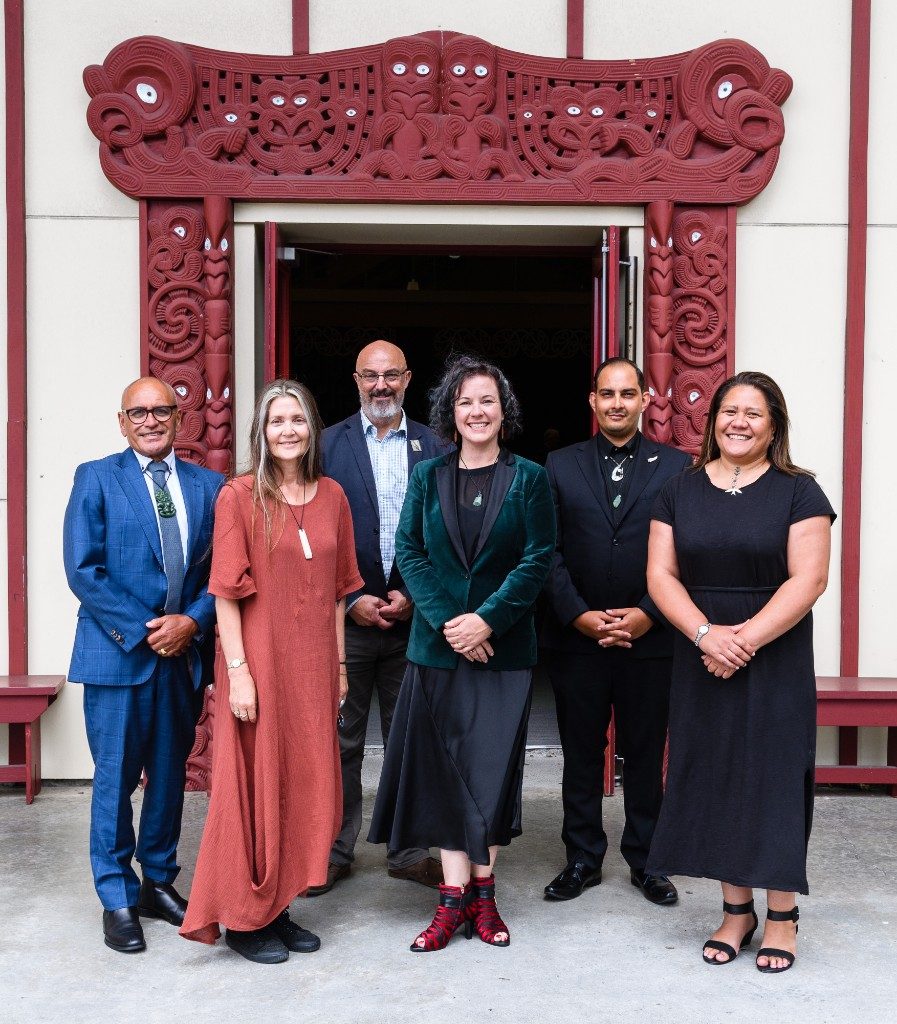Click here to listen to the highlights on YouTube
Click here to listen to the full podcast
Making a difference to improve mental health and well being services for Aotearoa New Zealand is what motivates the new CEO for the Mental Health and Wellbeing Commission (MHWC), Karen Orsborn.
Ms. Orsborn played an integral role with the initial Mental Health and Wellbeing Commission at the beginning of 2020 and lead the secretariat for the initial commission. She says she is committed to support the work of the commission, fulfil its role and mandate, and make a difference for people first and foremost.
The transformation of Aotearoa New Zealand’s approach to Mental Health and Wellbeing is a key component for Karen, working with the newly established commission that opened its doors in February. She says mental health and wellbeing is a really important issue for all people in New Zealand and also for Pacific communities, in particular youth and young people. “We really share the hopes and aspirations for future generations in terms of how we can make a contribution to making things different and better for our future generations.”
The MHWC was created from one of the 40 recommendations of He Ara Oranga report of the Government Inquiry into Mental Health and Addiction. Some of the commission’s core functions include; report on progress against implementation of the Government’s response to the recommendations of the inquiry, advocate for the collective interests of people with mental health and addiction challenges and their families and whānau, and provide advice to the Government.
Karen says the commission has a strong monitoring and reporting role to look at services and also look at broader factors, and develop insights and reports with a view on how well those things are working, and what needs to be different to improve services and outcomes for the community.
She also highlights the commission’s advocacy role working for the collective interests of groups and those with lived experience in their whanau; Maori, Pacific, Rainbow communities, and those communities that carry the biggest and heaviest burden of history.
With extensive experience working in the health sector as the former Health Quality Improvement and Deputy CEO at the Health Quality and Safety Commission, Karen recognises how important the commission’s role is to support the transformation of mental health and addiction system. She says she was humbled to talk to and hear from people across the country who shared their vision and hopes for better outcomes in the mental health and wellbeing sector. “Our aim, our aspiration, is that as a result of our work people will be getting the support that they need, when they need it, and the system will work better and people have greater trust and confidence in the system.”
Karen acknowledges that the expectations are high on the commission to deliver on the transformation of the mental health and addiction system. And while they are a small organisation, she is heartened by the response the commission has had since its formation both within the mental health and addiction sector by communities and across government, “I think it’s also really important to understand that changes to the system are underway and it will take time and there’s a lot to do … it’s important to know that the government did accept in some form almost all of the recommendations from the inquiry and did make a significant investment and so the money is flowing into the system, but it’s also a four to five year programme so it’s going to take time for that money to be seen and the impact to be seen consistently across the country.”
Karen says they are acutely aware that this can be hard for people when faced with an immediate need for the here-and-now. However she is confident that there are excellent services that can cater to the needs of the community. She notes examples of great services for the Pasifika community, such as the Cause Collective’s Do Good Feel Good programme and Le Va’s Flo Pasifika for Life. “Communities are stepping up and putting services and supports in place… and people are responding to what they see as their local needs.”
While there can be stigma around mental health and well being Karen notes people are talking more openly about the issues. She says COVID-19 has also opened up more discussion on the topic. Karen adds that the use of one’s language and cultural identity is an important feature in terms of wellbeing and one that the commission has taken on board.
Karen has high praise for the six member board she works alongside. The board who set out the strategic direction for the commission is led by the Chair Hayden Wano, Taimi Allan, Professor Sunny Collins, Alexander El Amanni, Kevin Hague, and Dr. Jemima Tiatia-Seath. “They have a really important role to engage with other agencies to align our work with other agencies and they really draw on their perspectives, their life experience, their insights, and expertise to inform the broad discussions and decision making.”

While the work ahead may seem daunting, Karen is confident they are on the right path to transform the Mental Health and Wellbeing system in the country. She understands there are challenges for people having a need in the here-and-now versus seeing a change in the system that will take time to build, however Karen is optimistic that together we can make a difference.
Featured image credit: Mark Coote for MHWC
Listen to the podcast highlights on YouTube
